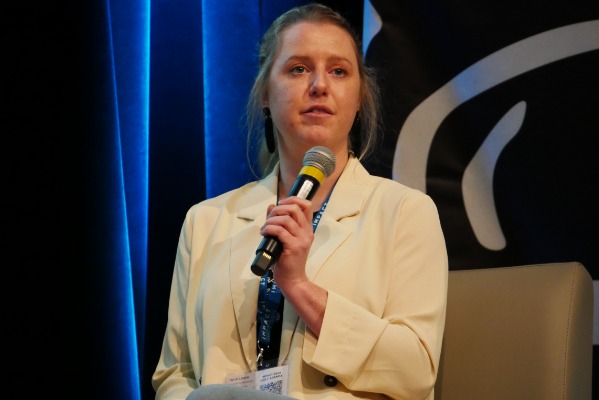Indigenous Values Guide Day Three of IMPACT

A Vision for Regenerative Tourism at the IMPACT Sustainability Travel and Tourism Conference in Victoria was largely guided by the beliefs and principles of Canadian Indigenous peoples on the third day of the conference, reports Press Today’s Ted Davis who was on hand for the event.
That’s when a panel of Indigenous tourism stakeholders took the stage at the Victoria Conference Centre, under the guidance of panel host Walt Judas, CEO of the BCTIA. Judas fielded a selection of questions designed to reveal the role of Indigenous values in the bigger picture of regenerative tourism in general.
He prefaced his questions by noting that BCTIA is broadening its tourism messaging, beyond just an economic framework, so that tourism is seen as “a force for social change, equality and reconciliation.”
Speaking on that theme, for example, was Bridget Orsetti, part of the management team at Spirit Bear Lodge in Klemtu, BC. She noted that values of respect for Indigenous culture and a willingness to learn about that culture are an expectation for guests who stay at the Lodge.
“It is a privilege to stay at Spirit Bear Lodge and we try to educate guests about that before they arrive. We want to ensure that guests care about this place, that they tread lightly, and that they hear our stories. But this is an ongoing challenge.”
That challenge becomes more acute in direct proportion to the growing popularity of a place like Spirit Bear Lodge, said Cecilia Dick of Explore Songhees Tourism. She acknowledged that “the respect is harder to maintain as you become more popular as a tourist attraction.” But she also noted that Indigenous nations had been “hosts” for centuries of history, and that “we know how to adapt to different visitors.”
This kind of outlook confirms the need “for a safe place” as “we commodify culture,” said Orsetti. She said that the opportunity for youth to have work and earn wages is a strong imperative to keep the Lodge open and operating, even while the danger of cultural commodification continues.
The concept of regenerative tourism takes root at home, in an environment that supports actions like recycling and respect for others, said Genevieve Huneault, the regenerative tourism specialist at the Indigenous Tourism Association of Canada.
“Regenerative travel starts with the way we behave at home,” she said, citing values such as compassion for others and awareness of the connections between humans and the natural world.
“These should be part of regenerative tourism – it takes it from theory into practice,” she said. The healing process that is part of the ongoing reconciliation with Indigenous nation is also an element of regenerative tourism, she said.
The IMPACT Sustainability Travel and Tourism Conference ran until May 11.
Caption for Photo
Genevieve Huneault, the regenerative tourism specialist at the Indigenous Tourism Association of Canada, spoke during the IMPACT conference.


